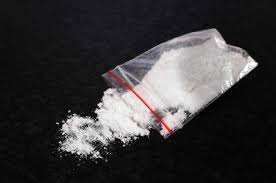Blog
Ketamine Crystal Vs Powder

Ketamine Crystal Vs Powder, Ketamine, a powerful dissociative anesthetic, is used both in medical settings and recreationally. It comes in different forms, most commonly as ketamine crystals and ketamine powder. While both forms are chemically similar, there are notable differences in appearance, usage, and effects. In this article, we explore the key differences between ketamine crystal vs powder, especially for those interested in understanding how the form can affect use and experience.
What Is Ketamine?
Ketamine is a Schedule III controlled substance commonly used in anesthesia. It has fast-acting sedative and pain-relieving effects. Over recent years, it has also gained attention for its potential in treating depression, PTSD, and chronic pain when administered under medical supervision.
Ketamine Crystals: Raw and Unrefined
Ketamine crystals are the raw form of the substance, usually resulting from the final stages of ketamine synthesis. These crystals are often clear, white, or slightly off-white, and resemble coarse salt or shards of glass.
Pros of Ketamine Crystals:
-
Purity: Crystals are often considered purer than powder, especially if uncut or minimally processed.
-
Longer shelf life: Crystals are less likely to absorb moisture, making them more stable over time.
-
Flexible usage: Crystals can be measured and crushed into powder for more controlled dosing.
Cons:
-
Harder to dose accurately: Crushing crystals requires precision for consistent dosing.
-
Preparation required: Must be processed (crushed) before intranasal use or other routes.
Ketamine Powder: Refined and Ready-to-Use
Ketamine powder is the finely crushed version of ketamine crystals. It is the most common form used recreationally due to its ease of administration, especially intranasally (snorting).
Pros of Ketamine Powder:
-
Easy to dose: The fine powder allows for more controlled measurement.
-
User-friendly: No need for extra processing—ready for use.
-
Commonly available: Powder is easier to distribute and transport.
Cons:
-
Risk of adulteration: Powder is more likely to be cut with other substances, reducing purity.
-
Moisture-sensitive: It can clump or degrade if not stored properly.
Ketamine Crystal vs Powder: Which Is Better?
Choosing between ketamine crystal vs powder depends on the user’s needs and the context of use. Medically, the form matters less, as it’s typically administered via injection or intravenous infusion under strict conditions. Recreational users, however, might choose crystals for perceived purity, while others may prefer powder for convenience.
Key Differences:
| Feature | Ketamine Crystal | Ketamine Powder |
|---|---|---|
| Appearance | Coarse, glass-like shards | Fine, white powder |
| Purity | Often higher | Can be cut or mixed |
| Preparation Needed | Must be crushed | Ready-to-use |
| Storage Stability | More stable | Sensitive to moisture |
| Dosing Control | Less precise | Easier to measure |
Final Thoughts
While both forms of ketamine have the same active compound, their physical state plays a role in how they are used and perceived. Ketamine crystals offer purity and stability, while ketamine powder provides ease of use and dosing precision. However, it’s important to remember that non-medical use of ketamine carries significant risks, including addiction, cognitive impairment, and physical health issues.
